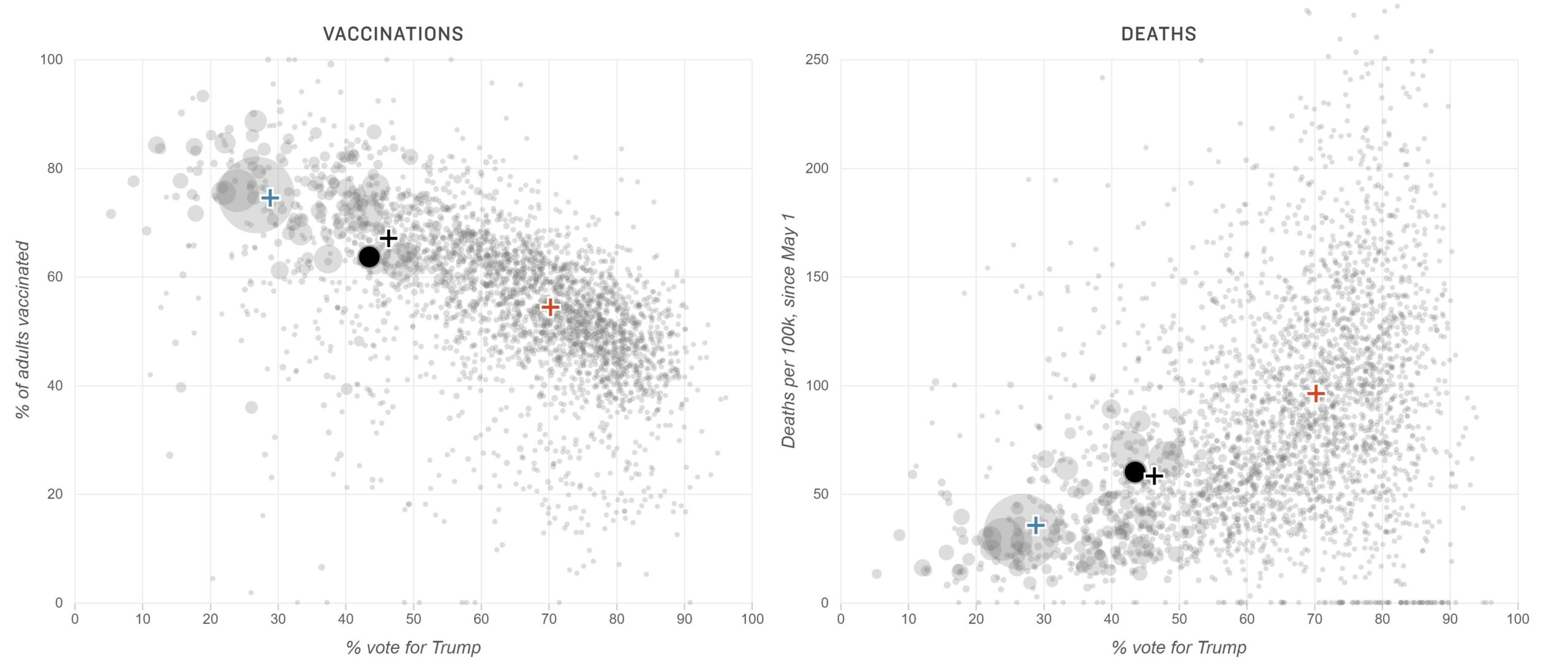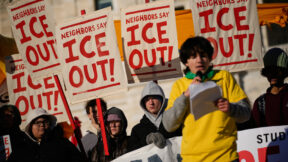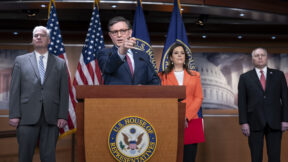Americans in Pro-Trump Counties Three Times More Likely to Die From Covid-19: NPR Survey Finds

National Public Radio (NPR) released a study this week showing that, since May 2021, Americans living in counties that voted overwhelmingly for Donald Trump in 2020 are almost three times more likely to die from Covid-19 than Americans living in counties that voted for Joe Biden.
NRP reports “counties that went 60% or higher for Trump in November 2020 had 2.78 times the death rates of those that went for Biden. Counties with an even higher share of the vote for Trump saw higher COVID-19 mortality rates.”
The figure is based on a survey of deaths per 100,000 people in some 3,000 counties, beginning in May 2021, when Covid-19 vaccines began to roll out. NPR also reported that “in October, the reddest tenth of the country saw death rates that were six times higher than the bluest tenth, according to Charles Gaba, an independent health care analyst” who reviewed the data.
Peter Hotez, dean for the National School of Tropical Medicine at Baylor College of Medicine, told NPR that the vast majority of the 150,000 Americans who have died since May were unvaccinated. Vaccine hesitancy is more common in the pro-Trump counties, which in general have a lower vaccination rate, and explains the disparity in county death rates.
NPR attributes vaccine hesitancy to misinformation surrounding vaccines and the pandemic in general:
Misinformation appears to be a major factor in the lagging vaccination rates. The Kaiser Family Foundation’s polling shows Republicans are far more likely to believe false statements about COVID-19 and vaccines. A full 94% of Republicans think one or more false statements about COVID-19 and vaccines might be true, and 46% believe four or more statements might be true. By contrast, only 14% of Democrats believe four or more false statements about the disease.
NPR has an interactive graph plotting county vaccination and death rates while highlighting both the national average and that county’s political leaning in 2020.





Comments
↓ Scroll down for comments ↓